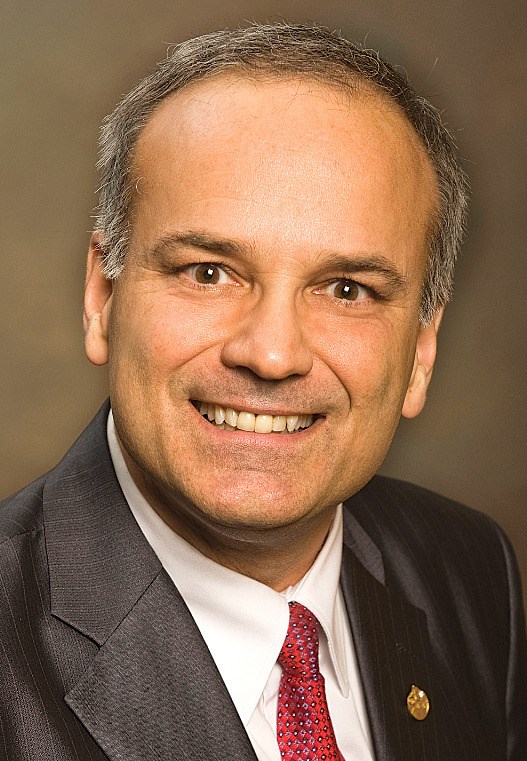Coquitlam city council wants Royal Columbian Hospital to improve its emergency department admissions procedures because too many of the city's Mounties are being "being used as security guards" when delivering mental health patients.
Mayor Richard Stewart wrote a letter to Minister of Mental Health and Addictions Judy Darcy after the Coquitlam RCMP recently presented some alarming numbers to council in its 2017 annual report. According to Stewart's letter, the detachment responded to 1,782 calls related to mental health, with 723 apprehensions under the Mental Health Act, an increase of 25% from 2016.
Of those, 303 required the RCMP to wait at RCH in New Westminster for more than two hours. The longest wait was 10 hours.
Stewart said many of the waits less than two hours were still about 90 minutes in duration and the delays affect both local policing and the quality of care for the mental health patients.
"They didn't surprise me at all," said Stewart of the 2017 stats. "We have been raising this issue repeatedly with government for a number of years and, in some respects, we've seen improvements [in wait times]. So these are the improved numbers and they're still too way too high from our perspective."
Local governments are responsible for policing costs and Stewart said the police officer's job is to deliver mental health patients who have been apprehended to the hospital. But the rules state the officer has to stick around until the patient is admitted.
"The [police officer's] role is over, yet once they're at hospital, too many times they're being used as a security guard to monitor the patient until the hospital is willing to accept the patient," said Stewart. "It is intensely frustrating to realize society could be paying hundreds of thousands of dollars because the hospital isn't prepared to take responsibility for the patient yet.
"Those police resources should be on the street… It's a process that makes no sense from the financial perspective but also from the perspective of patient care."
Stewart attributed some of the problem to RCH's triage policy that gives a higher priority to patients with physical medical symptoms than it does to mental health patients without such symptoms.
"It's a system the hospital does acknowledge doesn't work for mental health patients with acute episodes," said Stewart. "This isn't good for patients either. Mental health shouldn't be a second-class type of illness."
In his letter to Darcy, he suggested RCH institute a dual-track system similar to the one used at Surrey Memorial Hospital to help expedite mental health cases and reduce the costs associated with unnecessary wait times.
Darcy's office deferred comment to the Fraser Health Authority.
"We strive to ensure patients brought to our emergency departments are seen quickly and that these officers are able to return to the community in a timely manner," Fraser Health spokesperson Jacqueline Blackwell said in an email response.
She added Fraser Health is working closely with police to implement protocols to minimize the time officers must wait.
"Under the protocol, a police officer should approach the emergency department patient care co-ordinator if the patient has not been seen by the emergency room physician within 60 minutes," said Blackwell. "The patient care co-ordinator will ensure the emergency department physician sees the patient as soon as possible.
"Patients are triaged based on medical need, and in some cases, it may be necessary for a patient and officer to wait because other patients need care more urgently."
Stewart said the homeless shelter on Gordon Avenue in Coquitlam, which some councillors complained earlier this year had become more of a drug harm reduction centre than a homeless shelter, may have contributed to the increase in mental health arrests. He also said there are solutions that can avoid mental health situations from reaching critical stages.
"That number [of apprehensions] was a disconcerting increase, yet perhaps reflects the lack of non-urgent treatment options for mental illness," said Stewart. "There is nothing, and there continues to be very little, in the way of mental health treatment services unless it's a crisis, in which case it's the most expensive."
Stewart suggested to prevent so many crisis situations a wide array of mental health services, including intermediate care, would be ideally suited for the Riverview Hospital lands, in addition to the 105-bed facility scheduled to open in 2019.



